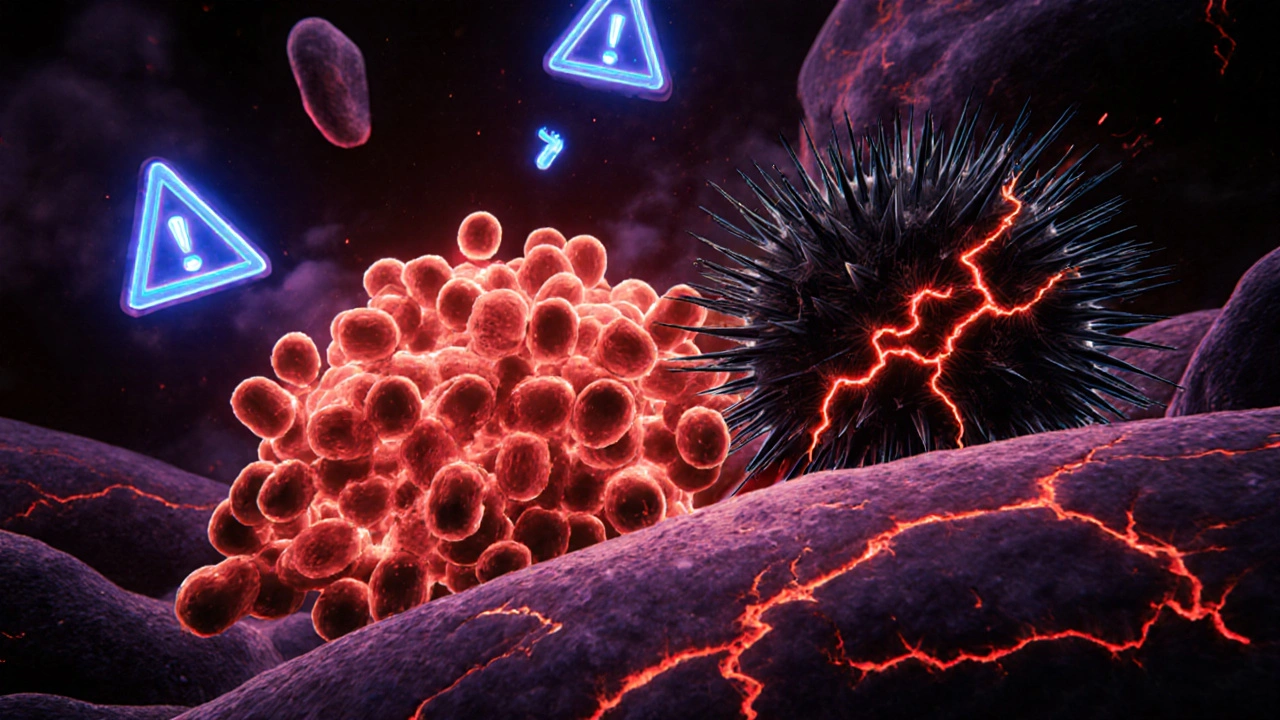Statins: What They Are, How They Work, and What You Need to Know
When doctors talk about lowering cholesterol, they’re often talking about statins, a class of medications designed to reduce low-density lipoprotein (LDL) cholesterol in the blood. Also known as HMG-CoA reductase inhibitors, cholesterol-lowering drugs work by blocking a liver enzyme that makes cholesterol, forcing the body to pull more LDL out of the bloodstream. This simple mechanism is why statins are the most prescribed type of heart medication in the U.S.
Statins don’t just lower cholesterol — they help prevent heart attacks and strokes, especially in people with high LDL, diabetes, or a history of cardiovascular events. Studies show that for every 40 mg/dL drop in LDL, the risk of a major heart event falls by about 20%. That’s not a small gain. People with high blood pressure, smokers, or those with a family history of early heart disease often benefit the most. But statins aren’t just for the elderly — they’re increasingly used in middle-aged adults with elevated risk, even if their cholesterol isn’t extremely high.
Not all statins are the same. atorvastatin, a potent statin often used for high-risk patients works longer in the body than pravastatin, a milder option often chosen for older adults or those with kidney issues. Then there’s rosuvastatin, known for its strong LDL-lowering power, and simvastatin, a budget-friendly choice with a higher risk of muscle-related side effects. Your doctor picks based on your cholesterol levels, other meds you take, and your tolerance for side effects.
Side effects are real but often overblown. Muscle aches happen in about 5-10% of users — but many of those cases aren’t even caused by the statin. Liver issues are rare. Blood sugar can rise slightly, but the heart protection usually outweighs that risk. If you’re worried, talk to your doctor before quitting. Stopping statins without a plan is one of the biggest mistakes people make. You’re not just losing the cholesterol benefit — you’re losing protection against something that could kill you.
Statins are often paired with lifestyle changes, but they’re not a substitute for them. Eating less saturated fat, moving more, and not smoking still matter. But for many, lifestyle alone isn’t enough. That’s where statins step in — not as a magic pill, but as a reliable tool that’s been tested in millions of people over decades.
Below, you’ll find real-world guides on how statins compare with other heart meds, what to watch for when taking them long-term, and how they fit into broader treatment plans for cholesterol and cardiovascular health. These aren’t theoretical reviews — they’re practical breakdowns from people who’ve been there, doctors who’ve seen the results, and patients who know what works.

